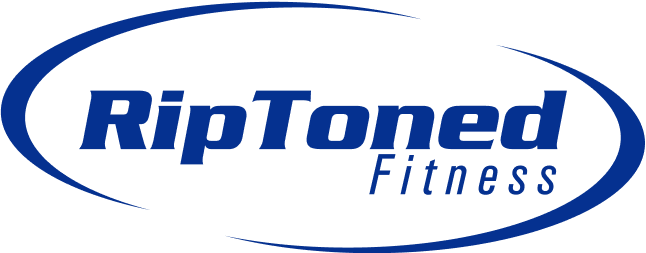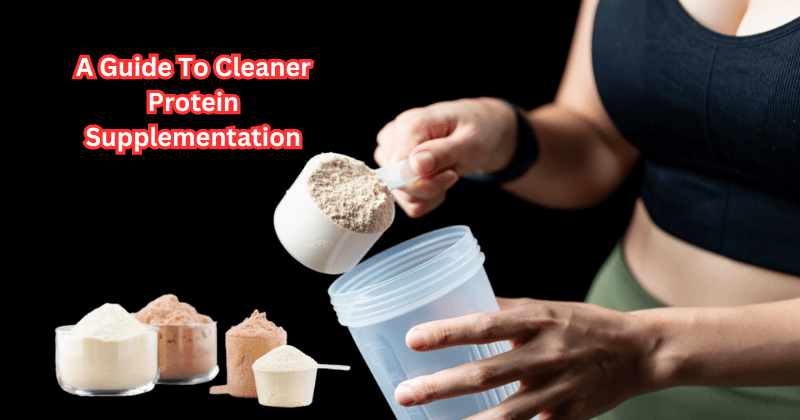Embarking on a journey towards cleaner protein supplementation opens the door to enhanced wellness and nutrition. This comprehensive guide is designed to navigate the maze of protein options, shedding light on the importance of quality, transparency, and sustainability in your protein choices.
By delving into the world of clean protein sources, such as plant-based proteins and ethically sourced animal proteins, you can align your supplementation with your values and health goals.
Understanding the impact of additives, processing methods, and certifications on protein purity empowers you to make informed decisions that not only benefit your body but also contribute to a healthier, more sustainable lifestyle.
The Importance of Quality Protein
Protein is an essential macronutrient that plays a crucial role in maintaining and repairing our body's tissues and cells. It also serves as a building block for enzymes, hormones, and antibodies, vital for proper bodily functions. However, not all protein sources are created equal.
Low-quality proteins may contain harmful substances such as heavy metals, pesticides, antibiotics, and growth hormones. These additives can have negative impacts on our health, from disrupting hormonal balance to causing inflammation and even chronic diseases in the long run. Therefore, choosing high-quality protein sources is key to safeguarding your well-being.
Types of Protein Supplements
There are various types of protein supplements available on the market, each with its benefits and considerations. Some common options include whey, casein, egg white, collagen, soy, pea, rice, hemp proteins, and more.
Whey:
Derived from milk, whey protein is a complete protein source containing all nine essential amino acids. It has a high bioavailability, meaning it can be efficiently absorbed and utilized by the body. Whey protein also contains beneficial antioxidants and immune-boosting components. Whey protein isolate is a purer form of whey with a higher protein content and lower levels of lactose.
Casein:
Also derived from milk, casein protein differs from whey in its slower digestion rate. This makes it an excellent choice for sustained release of amino acids throughout the day or before bedtime.
Egg White:
Egg whites are considered one of the highest-quality proteins available, as they contain all essential amino acids in optimal ratios for human consumption. They are also free from lactose and cholesterol, making them a suitable option for those with dairy allergies or dietary restrictions.
Collagen:
Collagen is a protein in our connective tissues, skin, and bones. It has gained popularity as a supplement due to its potential benefits for skin health, joint function, and muscle recovery.
Plant-based Proteins:
Plant-based proteins such as soy, pea, rice, and hemp are excellent alternatives for those looking for non-animal sources of protein. They are also suitable options for vegans and vegetarians. However, it's important to note that some plant-based proteins may not contain all nine essential amino acids and may require combining different sources to achieve optimal ratios.
How Protein Supplements Work
Protein supplements are commonly used to boost daily protein intake, especially for individuals with increased protein needs, such as athletes, older adults, and those recovering from injuries. They can also be beneficial for individuals on plant-based diets or those looking to build muscle mass.
Protein supplements come in various forms, such as powders, bars, and ready-to-drink beverages. They can be taken before or after a workout as a meal replacement or snack throughout the day.
When consumed, protein supplements break down into amino acids that are then used by our bodies to repair and build new tissues. This process is essential for maintaining muscle mass and promoting recovery after physical activity.
What to Look For Cleaner Protein Supplementation
When choosing a protein supplement, it's important to consider the quality and purity of the product. Some factors to look for include:
Certifications:
Look for third-party certifications such as USDA Organic, NSF Certified for Sport, and Non-GMO Project Verified. These certifications ensure that the product has undergone strict testing and adheres to specific standards.
Transparency:
The more transparent a company is about its sourcing and production methods, the more trustworthy its products are likely to be.
Additives:
Avoid supplements with added sugars, artificial flavors, colors, and preservatives. These additives can negate the benefits of clean protein supplementation.
Sourcing:
Opt for protein sources from sustainable and ethical practices. This includes grass-fed animal proteins or plant-based options from non-GMO, organic sources.
These considerations can help you make informed decisions that not only benefit your health but also support ethical and sustainable practices in the food industry.
What is the Standard Serving Size for Protein?
The recommended daily intake of protein is 0.36 grams per pound of body weight for the average sedentary adult. However, this may vary depending on age, activity level, and overall health goals.
Age:
Older adults may require more protein to maintain muscle mass and prevent age-related muscle loss.
Activity Level:
Individuals who engage in regular physical activity, especially strength training, may have higher protein needs to support muscle repair and growth.
Health Goals:
Individuals looking to lose weight or gain muscle mass may need to adjust their protein intake accordingly.
When it comes to protein supplementation, it's important to follow the serving size recommendations provided by the manufacturer. Consuming an excess amount of protein can strain your kidneys and lead to potential health issues.
What is the Right Time to Consume Protein Supplements?
The timing of protein supplement consumption plays a significant role in maximizing its benefits. Here's a breakdown of optimal timings:
- Post-Workout: Consuming protein supplements within 30 minutes after a workout can aid muscle recovery and growth due to increased protein synthesis during this period.
- Pre-Workout: Taking protein supplements 30-60 minutes before a workout can provide a source of amino acids for energy and muscle preservation during exercise.
- Throughout the Day: Spreading protein intake evenly across meals can support muscle maintenance and satiety throughout the day.
- Before Bed: A protein supplement can promote overnight muscle repair and growth.
This is just a general guideline, and it's recommended to consult with a healthcare professional or nutritionist for personalized recommendations based on your specific needs and goals.
Is Protein Powder Healthy?
There is a common misconception that protein powders are unhealthy or even dangerous. This may be due to additives in some products and misinformation about the potential risks of consuming too much protein.
However, when chosen wisely and used as part of a balanced diet, protein powder can be a healthy addition to your daily routine. It's important to remember that supplements should never replace whole foods but rather complement them.
FAQs
What are the benefits of using clean protein powders like pea protein?
Clean protein powders, including those made from pea protein, are excellent for supporting muscle growth and providing a high-quality protein source. Pea protein is particularly known for its easy digestibility and balanced profile of branched-chain amino acids, crucial for muscle repair and growth.
How can clean protein powders aid in weight loss?
Incorporating clean protein powders into your diet can help with weight loss by promoting satiety and reducing overall calorie intake. The high-quality protein helps maintain muscle mass during weight loss, ensuring that the body burns fat instead of muscle.
How much protein should I consume daily to see benefits from supplementation?
The protein you need can vary based on age, gender, activity level, and health goals. Generally, aiming for adequate protein intake involves consuming approximately 0.8 to 1 gram of protein per kilogram of body weight. However, those looking to enhance muscle growth or improve weight loss might benefit from slightly higher amounts.
What should I look for when choosing a quality protein powder?
When selecting a quality protein powder, look for products that specify "clean protein" on their labeling, which indicates minimal processing and the absence of unnecessary additives. Quality protein powders should also have a complete amino acid profile, including essential branched-chain amino acids, to effectively support your health goals.
Conclusion
In conclusion, embracing cleaner protein supplementation enhances your nutritional intake and aligns with the values of sustainability and wellness. By incorporating plant-based proteins and ethically sourced animal proteins and understanding the impact of processing methods and additives, you can make informed choices that benefit your body and the environment.
This guide serves as a compass, navigating you toward protein sources that uphold purity, transparency, and quality. By integrating these principles into your dietary routine, you not only optimize your health but also contribute to a more sustainable and ethical approach to protein consumption, fostering a holistic well-being journey.

Click Here to Learn More About the Rip Toned Supplements

